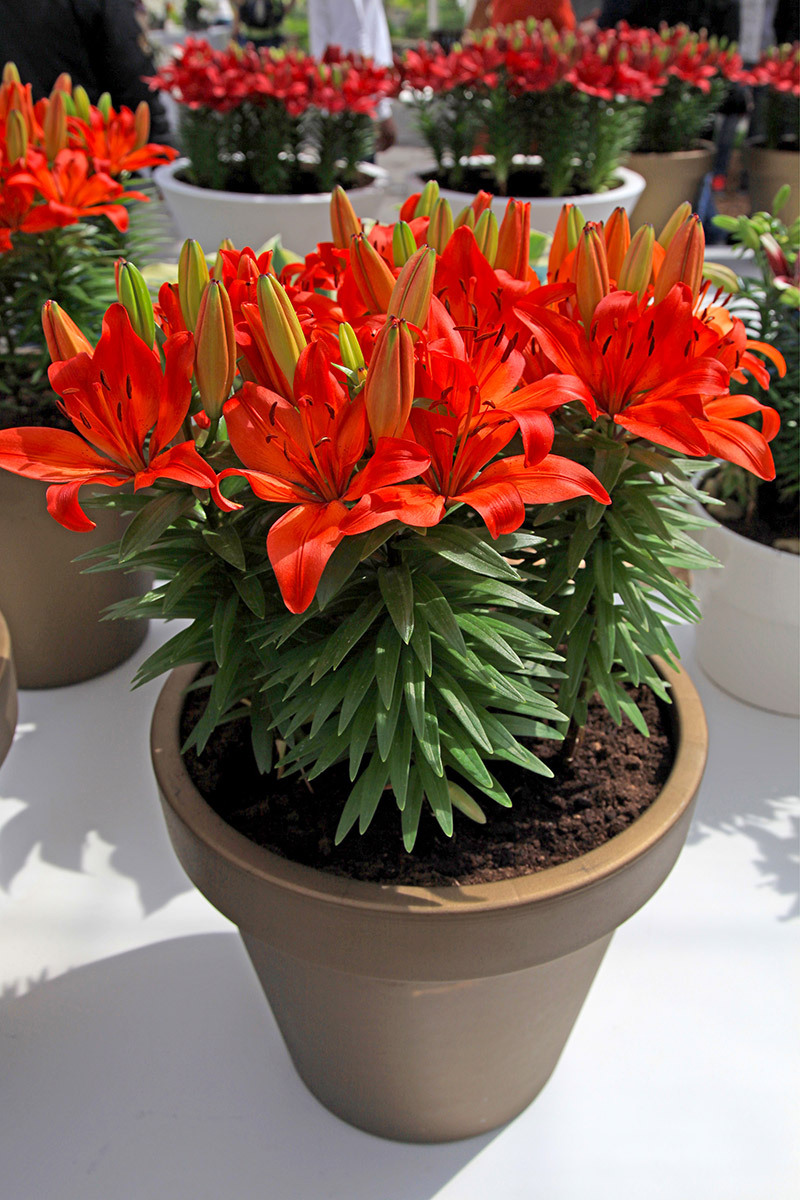Secrets to Keeping Poinsettias Vibrant All Season
Posted on 01/07/2025
Secrets to Keeping Poinsettias Vibrant All Season
Are you enchanted by the dazzling ruby-red and creamy-white blooms of poinsettias every holiday season, only to find them drooping or browning before New Year's? You're not alone. While poinsettias are synonymous with festive cheer and winter decor, their reputation for being "fussy" is often a result of easy-to-avoid care mistakes. Unlock the secrets to keeping your poinsettias vibrant all season with this in-depth, step-by-step guide. Learn how to nurture these holiday stars so they remain brilliant, healthy, and glowing from December through winter!
Understanding Poinsettias: The Foundation for Year-Round Beauty
Before we dive into tips and tricks, it's essential to understand what makes a poinsettia unique. Native to Mexico, poinsettias (Euphorbia pulcherrima) are not actually flowers--their brilliant colors are modified leaves, known as bracts, surrounding small yellow flowers called cyathia. These plants thrive in warm, sunny climates but can be sensitive to changes in their environment.
- Scientific Name: Euphorbia pulcherrima
- Common Names: Christmas Star, Christmas Flower
- Classic Colors: Red, white, pink, variegated
- Bloom Season: Late fall through early winter, with proper care extending vibrancy well into spring

Key Secrets to Poinsettia Longevity & Vibrant Color
Keeping poinsettias beautiful for weeks, or even months, comes down to precise care. From proper lighting to watering secrets and optimal placement, discover how you can unlock the full potential of your festive foliage.
Select the Healthiest Plants from the Start
- Choose plants with dark green foliage from top to bottom.
- Look for bright, fully colored bracts and avoid faded or wilted specimens.
- Check the yellow centers (cyathia) -- they should be tight and vividly colored (not yellowed or falling out).
- Avoid poinsettias displayed near store entrances or cold drafts; sudden exposure to cold can cause leaf-drop shock before you even bring them home!
Location, Location, Location
Proper placement is vital for keeping poinsettias vibrant all season. Here are proven strategies to position your poinsettia for success:
- Bright, indirect sunlight: Poinsettias need at least 6 hours of filtered sunlight each day. Avoid harsh midday sun, which can bleach leaves.
- Keep away from temperature extremes: Place your plant in a spot protected from cold drafts (never below 55?F/13?C) and away from direct heat like radiators, fireplaces, or vents.
- Constant temperature: Aim for steady indoor temperatures between 60-72?F (16-22?C). Fluctuations can trigger leaf drop.
- No contact with cold glass: Ensure leaves don't touch chilly window panes, as this can cause damage.
Watering Wisdom: The Key to Lush, Lasting Color
Improper watering is the #1 reason poinsettias fail to thrive. Too much or too little can cause wilting, yellowing, and root rot. Need a foolproof watering guide?
- Check soil moisture daily. Stick your finger about 1 inch deep into the pot--water only when the surface feels dry, but don't wait until the soil is parched.
- Water thoroughly until it drains from the bottom, but don't let your poinsettia sit in standing water. Remove any excess water from the saucer within 15 minutes.
- If your poinsettia came with decorative foil around the pot, poke holes in it or remove it to allow proper drainage.
- Reduce watering frequency as daylight hours decrease or if placed in cooler rooms.
Secret tip: Wilting leaves can signal both under- and over-watering. Always check the soil before giving your plant more water!
Humidity and Air Quality: Poinsettias Prefer It Just Right
Poinsettias naturally thrive in slightly humid environments. Our homes, especially during winter, tend to have dry air due to heating systems. Here's how to help:
- Mist leaves lightly or use a room humidifier to maintain moderate humidity (40%-60%).
- Keep away from blasts of dry air, such as heater vents or fans.
- Group several houseplants together to create a naturally moister microclimate.
Fertilizing Secrets for Lasting Brilliance
Though poinsettias do not require fertilizing while in bloom, you can promote post-holiday vigor and encourage lush green growth for next season by applying fertilizer as soon as blooming ends (typically late winter or early spring).
- Use a balanced, all-purpose houseplant fertilizer--diluted to half strength--every 2-4 weeks starting in spring.
- Never fertilize when the plant is stressed, wilted, or during blooming.
Extra Tips for Maintaining Poinsettia Color and Health
Rotate Your Plant Regularly
Poinsettias grow toward sunlight. A quarter-turn every few days ensures even growth and prevents a lopsided appearance.
Prune Smartly for Continued Beauty
After the holiday season, some foliage may fade or drop. Pruning encourages new, compact growth:
- In early spring, when bracts lose color, trim stems back to 4-6 inches above the soil.
- Use clean, sharp shears to prevent disease transmission.
- Regular pinching back (removing the tips) during summer promotes bushier plants for next year.
Important: The milky sap may irritate skin, so wear gloves when pruning poinsettias.
Repotting for Long-Term Health
If you want to keep your poinsettia year-round, repotting can ensure strong growth and health:
- Repot in late spring, after the blooming phase, using a slightly larger pot with fresh, well-draining potting mix.
- Gently loosen old roots, removing any dead or rotted material.
- Water well and place in a bright, warm location to stimulate regrowth.
Poinsettia Toxicity & Pet Safety
A common myth is that poinsettias are highly toxic. While they're not deadly, their sap can cause mild digestive upset or skin irritation in pets and people. Still, it's wise to:
- Keep poinsettias out of reach of curious pets and small children.
- Wash hands after handling or pruning.
Keeping Poinsettias Colorful Until Spring: The Myth vs. Reality
It's true that poinsettia bracts will eventually fade, but with attentive care, many varieties will remain vibrant for up to three months or longer. If you're determined to keep the plant colorful all season:
- Follow all care guidelines above for lighting, watering, and humidity.
- Remove fading or yellowing bracts and leaves promptly to divert energy to healthy growth.
- Protect the plant from shocking drafts, rapid temperature swings, or overwatering.
The Annual Challenge: How to Re-Bloom Poinsettias for Next Year
Want to keep your poinsettia thriving for next holiday season? While it requires patience, many plant lovers enjoy the rewarding challenge. Here's a step-by-step guide:
After-Bloom Rest Period
- Once colorful bracts fade, reduce watering. Allow the top inch of soil to dry between waterings.
- Let the plant rest with less frequent watering (but don't let it dry out completely).
- Move it to a cool, bright spot for the summer.
Encouraging New Growth: Pruning & Fertilizing
- In late spring, prune stems to 6 inches from the pot's rim.
- Begin fertilizing every 4 weeks with diluted all-purpose fertilizer as new shoots appear.
Re-Blooming Secret: The Fall Darkness Cycle
Poinsettias require a period of uninterrupted darkness to form new colorful bracts for the holidays. This process, called photoperiodism, mimics the short days of autumn in Mexico.
- Starting in late September or early October: Each night, cover the plant with a light-proof box or place it in a dark closet for 14 hours (e.g., 5 p.m. to 7 a.m.).
- By day: Move the plant back to bright, indirect sunlight for the remaining 10 hours.
- Repeat this process daily for 8-10 weeks. Missed nights can delay or prevent coloring!
- Once vivid color returns to the bracts, return your poinsettia to its regular display area and resume normal care.
Common Mistakes to Avoid with Poinsettias
- Overwatering: Leading cause of root rot and leaf drop.
- Underwatering: Causes wilting and premature browning.
- Insufficient light: Bracts may never reach full color or may drop early.
- Exposing to cold drafts or hot air: Rapid temperature swings stress plants and reduce their vibrancy.
- Ignoring fading leaves: Remove them to maintain overall appearance and health.

FAQs: Keeping Poinsettias Vibrant All Season
How long should a healthy poinsettia last indoors?
With the right care, many poinsettias can remain vibrant for 2-3 months or longer.
Can you keep poinsettias outside?
Only in climates where nighttime temperatures never drop below 55?F (13?C)--otherwise, they're best kept as houseplants.
Why are the leaves on my poinsettia falling off?
Leaf-drop is usually a sign of improper watering, temperature shock, or abrupt changes in light. Review care steps above to troubleshoot.
Is it possible to get a poinsettia to bloom next year?
Yes--follow the photoperiod darkness routine in autumn to stimulate re-blooming.
Final Thoughts: Celebrate the Season With Everlasting Poinsettia Brilliance
By following these proven secrets to keeping poinsettias vibrant all season, you'll enjoy elegant, festive color from the start of the holidays well into spring. Remember, the key is balance: steady light, measured watering, and careful temperature control. With just a little extra attention, poinsettias can outlast the season and become the centerpiece of your indoor garden--year after year!
Share your own tips or success stories on keeping poinsettias brilliant! With these tricks, your home will glow with holiday warmth for months to come.
Latest Posts
The Perfect Flowers to Celebrate a Birthday
Uncover surprising truths about the magnificent sunflower
Discover the Rich Symbolism of Peony Flowers by Color





